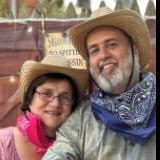Designed for Communication and the Wonder of Learning to Speak
Have you ever wondered how babies learn to speak? At first, they seem to just make random noises, but before long, they’re forming words and sentences. It’s almost magical how an infant, starting with no understanding of language, somehow cracks the code of human speech. But behind that magic is a process that scientists are only beginning to fully understand.
From the moment they’re born—perhaps even earlier—babies are listening. They don’t just hear sounds; they start sorting them into meaningful patterns. Unlike a simple noise, language has rhythm, repetition, and structure. Even before an infant understands the meaning of a word, their brain is busy recognizing speech as something special.
A fascinating study by C. S. Ali in 2011 found that infants as young as 3.5 months can recognize their own name, even in a noisy environment. That means long before they say "mama" or "dada," their brain is already isolating familiar words from the sea of sounds around them. And as they grow, their ability to distinguish language from noise becomes more refined.
Early on, infants have a remarkable ability to recognize all the different sounds, or phonemes, used in languages worldwide. A Japanese baby, for example, can hear the difference between "r" and "l"—something adult Japanese speakers struggle with because it's not a distinction in their native language. But around their first birthday, their brain starts filtering out sounds they don’t need for their mother tongue. This phenomenon, known as phoneme pruning, was explored in a 2015 study by Ghafoori and Mohammady, which found that babies’ initial ability to perceive speech is broad and universal, but it narrows over time based on what they hear around them.
So how do babies go from hearing sounds to understanding words? The key is pattern recognition. In a 2003 study, researchers found that 8-month-old infants could recognize and remember words they had previously heard in a sentence, even after a two-week delay. This suggests that babies don't just absorb speech passively; their brains actively organize the information, picking out common sequences and associating them with meaning. Over time, those sounds become words, and those words form the building blocks of grammar and communication.
But recognizing words is only half the battle. Babies also have to figure out what those words mean. One study in 2008 by Gervain and Werker explained how infants use the statistical properties of speech—essentially, tracking how often certain sounds appear together—to start understanding the rules of their language. This means that even before they understand words like "dog" or "ball," they’re picking up on the rhythm and structure of language, which will eventually help them make sense of it all.
All of this happens long before a child ever speaks a word. By the time a baby utters "mama," their brain has already done an extraordinary amount of work: distinguishing language from other sounds, recognizing common words, and forming mental patterns of speech. Learning to speak isn’t just about repeating what they hear—it’s about decoding an entire system of communication.
The wonder of language development is that it happens so seamlessly, so naturally, that we often take it for granted. But in those first months and years, an infant’s brain is performing one of the most complex tasks in human cognition—one that will shape how they interact with the world for the rest of their life. If you’ve ever spoken to a baby and seen them light up in response, remember: in that moment, they’re not just hearing you. They’re learning, one syllable at a time.
Jehovah, the Creator of all things, designed this incredible process, demonstrating His wisdom and love. As Psalm 139:14 says, "I will praise you because in an awe-inspiring way I am wonderfully made. Your works are wonderful, I know this very well." From infancy, children benefit greatly when they are taught about Jehovah and His ways. Proverbs 22:6 reminds us to "Train a boy in the way he should go; even when he grows old he will not depart from it." Teaching our children Jehovah’s principles from an early age instills in them a foundation of love, kindness, and wisdom, guiding them through life’s challenges. By nurturing their developing minds with spiritual truths, we not only honor our Creator but also equip our children with a lasting moral compass that will benefit them for a lifetime.
Sources:
-
Ali, C. S. (2011). Knowing Your Name: Hearing and Recognition in Infants.
-
Walley, A. (2002). The Future of Infant Speech Perception Research.
-
Ghafoori, N., & Mohammady, R. (2015). Infants’ Perception of Suprasegmental and Segmental Aspects of Language.
-
Kajikawa, S., & Masataka, N. (2003). Recognition of Sound Patterns of Words Extracted from Spoken Sentences by Preverbal Infants.
-
Gervain, J., & Werker, J. (2008). How Infant Speech Perception Contributes to Language Acquisition.
-
Psalm 139:14, Proverbs 22:6 (Holy Bible).
-
 3
3
-
 1
1
-
 2
2

0 Comments
Recommended Comments
There are no comments to display.
Join the conversation with your brothers and sisters!
You are posting as a guest. If you are already a member, sign in now to post with your existing account.
Note: Your post will require moderator approval before it will be visible.